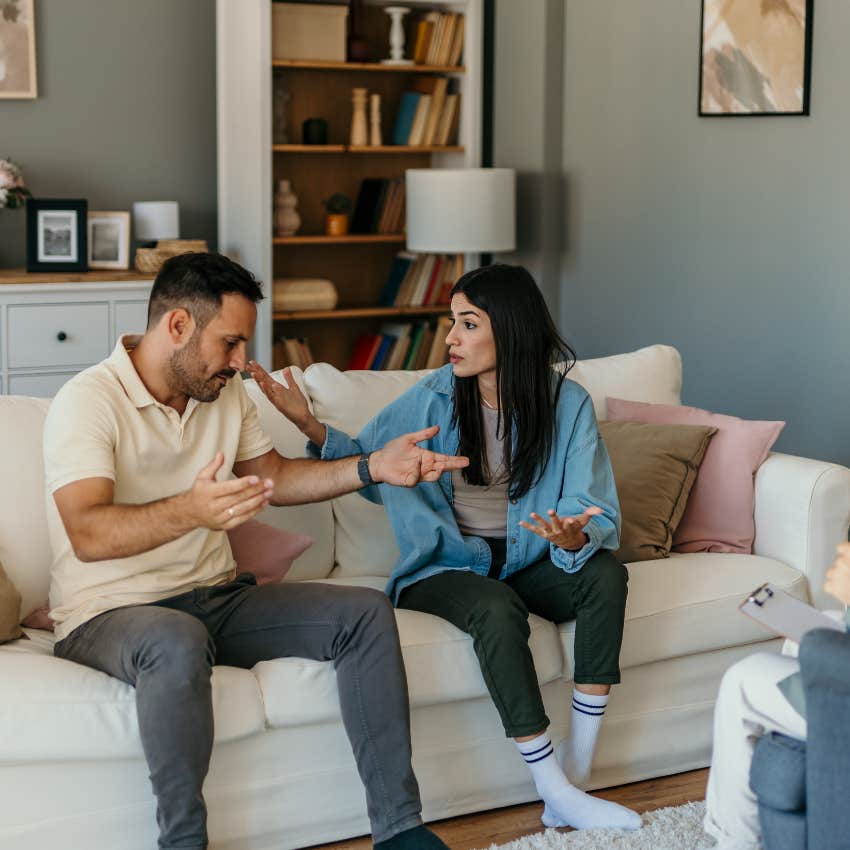In the face of looming problems that range from abuse and blending families to who does the chores, couples are encouraged to seek couples therapy. Yet, what happens when therapy fails to address the problems in a relationship? What options are left?
At the age of 42, with two children in elementary school, Mary Ann Lowry was diagnosed with a chronic pain condition. Lowry explains her husband had a hard time coming to terms with her illness.
“He frequently used verbal abuse to try to convince me to be healthy,” she says. “The therapists tried to help him see that sickness, death, and pain are part of life. He couldn’t come to terms with my physical limitations, and despite their best efforts, the therapists weren’t able to break through the hardcore resistance to accepting my health situation. When I finally had to leave work and go out on full disability, he was not able to support the decision.”
Despite the money, time, and effort spent in counseling, trying to work on their marriage, it failed. Lowry and her husband went to individual and couples counseling on and off for 11 years, and still, the marriage ended.
I.G. Frederick went through a similar situation. “I signed on for couples counseling, thinking it could help repair a 20-year relationship. Instead, it convinced me that my marriage was irreparably broken.” Frederick explains, “I have learned that our choice of counselors may not have been the best — I found out she’s Courtney Love’s mother and has been divorced three or four times herself.”
Irina Baranov of the Council for Relationships has seen several examples where therapy didn’t work for a couple. While there are many reasons, Baranov points to five key elements that make it difficult to succeed in therapy.
When couples therapy doesn’t work, it usually comes down to these 5 things:1. One or both partners haven’t healed their own past trauma
The easily missed obstacle with couples therapy is that it assumes both people are starting from the same emotional baseline. In reality, one or both partners might be carrying unresolved trauma. A person working through the aftermath of abuse needs safety and validation before they can engage in the collaborative work that couples therapy needs, a 2024 study stresses.
This doesn’t mean the relationship is beyond help, but it does mean the timing and order of intervention matter. This doesn’t mean the relationship is beyond help, but it does mean the timing of intervention matters. The therapist becomes an ineffective third party trying to mediate between two people operating from entirely different starting points.
2. One partner is forcing the other to go against his/her will
 La Famiglia / Shutterstock
La Famiglia / Shutterstock
Couples therapy requires willingness from both partners to participate and engage in the process. This is because the reluctant partner will often show up physically but emotionally checks out, going through the motions without any real investment in change, one study suggested.
True change needs both people to choose to be there, to want things to improve, and to be open to examining their own role in the relationship’s dynamics. Without that mutual choice, even the most skilled therapist will struggle to create the safe, collaborative space that healing demands.
3. The goals of therapy aren’t clear
One partner might hope the therapist will convince their spouse to change, while the other wants validation that their feelings are justified. Without explicitly defining what success looks like, the couple and therapist end up working against each other.
Research has found that the most effective couples therapy begins with a candid conversation about objectives. When both partners and the therapist align on these goals from the start, therapy has a clear direction and measurable markers of progress.
4. One or both partners aren’t comfortable discussing intimate details with a stranger
The setting itself can be a barrier to progress, a 2012 study concluded. The discomfort of being in a confined space with a stranger doesn’t necessarily mean that therapy won’t work, but if it prevents either partner from opening up, the therapist won’t be able to see the entire picture.
Some couples benefit from alternative formats like online therapy, which can make the entire experience feel less clinical. Other options include longer sessions that allow time for trust to build or even a different therapist whose style resonates better with them.
5. The therapy or therapist is a bad match for the couple
“Therapy isn’t for everyone,” says Baranov. But there are other options. Local organizations like the Council for Relationships, churches, hospitals, and community centers often offer marriage seminars and classes for couples. Bookstores are often full of books and DVDs that can give a couple the tools to navigate the tricky waters of their relationship.
Also, Baranov suggests that couples make time for one another and seek out new experiences together. Explains, Baranov, “There’s no substitute for uninterrupted time alone with your partner, to just focus on each other and show interest, attention, affection, and love. And whether it’s travel or cooking, language or art classes, anything new that you do together tends to add a little more glue to the bond.”
Marilyn Barnicke Belleghem, a former registered marriage and family therapist, suggests that before a couple goes into counseling, they find a good therapist to evaluate their credentials, their biases, and get to know where the therapist is coming from. “Therapists are people too,” explains Belleghem, “Sometimes a therapist and a couple just don’t match up, and that’s okay.”
Other times, failure is all in how you define the word. Explains Frederick, “Going through counseling helped me come to terms with my marriage’s ‘failure’ which was very difficult for me to accept. Now, I’m quite happy in my new life.”
Lyz Baranowski is a writer and editor whose work has been published in Guideposts, Real Weddings, The Contemporary Reader, the Des Moines Register, and the Cedar Rapids Gazette.
Related Stories From YourTango:
